Marcia Thornton Jones's Blog, page 194
June 14, 2014
The Long Way Home to Becoming a Children’s Author – June Theme by Tamera Wissinger
For me, knowing that I wanted to be an author, in particular a children’s author, came about in a long and zigzagging way.
I have always loved rhyme, rhythm, and stories. Here is the first book that I remember reading and chanting when I was very small:
 In school I loved writing stories and poetry:
In school I loved writing stories and poetry:
 But if you had asked me what I wanted to be when I grew up, I would have said:A DOCTOR.
But if you had asked me what I wanted to be when I grew up, I would have said:A DOCTOR.
 Because at the time I knew of no women who were doctors, and that fact alone was great fuel. My plan would have worked if it weren’t for:
Because at the time I knew of no women who were doctors, and that fact alone was great fuel. My plan would have worked if it weren’t for:
SCIENCE
 AND MATH.
AND MATH.
 My back up plan was to be an:OLYMPIC SPRINTER.
My back up plan was to be an:OLYMPIC SPRINTER.
 This plan would have worked, too, if not for:LONG AND GRUELING TRAINING.
This plan would have worked, too, if not for:LONG AND GRUELING TRAINING.
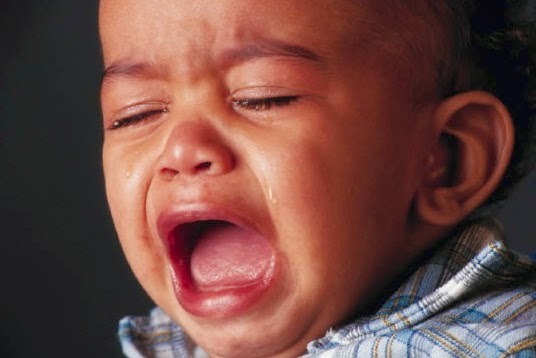 So when I graduated from college with a non-teaching English degree, I did the most logical thing and:ENTERED THE BUSINESS WORLD.
So when I graduated from college with a non-teaching English degree, I did the most logical thing and:ENTERED THE BUSINESS WORLD.
 It was right up there with my doctor and Olympic athlete plans, but I became quite a proficient business writer and at least it paid the bills. The whole time I worked in the business world, though, on nights and weekends I was:SECRETLY WRITING STORIES AND POETRY.
It was right up there with my doctor and Olympic athlete plans, but I became quite a proficient business writer and at least it paid the bills. The whole time I worked in the business world, though, on nights and weekends I was:SECRETLY WRITING STORIES AND POETRY.
 One Friday night, after many years of doing a type of work that I didn’t love, as I lamented to my husband that I wanted to be a writer, he said:
One Friday night, after many years of doing a type of work that I didn’t love, as I lamented to my husband that I wanted to be a writer, he said:
"IF YOU WANT TO WRITE, THEN WRITE."
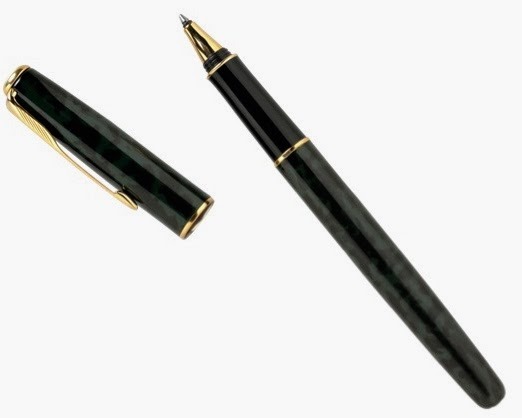 Oh. In that one phrase, he removed all of the years of obstacles that I had built up. He is also the person who, a year or so later, suggested:"MAYBE YOU SHOULD WRITE FOR CHILDREN."
Oh. In that one phrase, he removed all of the years of obstacles that I had built up. He is also the person who, a year or so later, suggested:"MAYBE YOU SHOULD WRITE FOR CHILDREN."
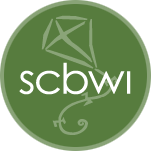 Coming off of a horrible screenwriting experience, his advice sounded very good to me. That was more than eleven years ago and I’ve never looked back.
Coming off of a horrible screenwriting experience, his advice sounded very good to me. That was more than eleven years ago and I’ve never looked back.
No short cuts here in recognizing that I wanted to be a children’s author, but after taking so long to arrive it feels as though:
I’M HOME.

Note: I made a short video on this same theme, and am sharing it today on my website: The Writer's Whimsy.
~~~~~
Now that she has figured out what she does well in life, Tamera Wissinger spends much of her time writing stories and poetry for children. Here recent work includes GONE FISHING: A Novel In Verse, and THIS OLD BAND. For more about Tamera, you can visit her website: www.tamerawillwissinger.com, or follow her on Twitter @TameraWissinger.
I have always loved rhyme, rhythm, and stories. Here is the first book that I remember reading and chanting when I was very small:
 In school I loved writing stories and poetry:
In school I loved writing stories and poetry:
 But if you had asked me what I wanted to be when I grew up, I would have said:A DOCTOR.
But if you had asked me what I wanted to be when I grew up, I would have said:A DOCTOR. Because at the time I knew of no women who were doctors, and that fact alone was great fuel. My plan would have worked if it weren’t for:
Because at the time I knew of no women who were doctors, and that fact alone was great fuel. My plan would have worked if it weren’t for:SCIENCE
 AND MATH.
AND MATH.
 My back up plan was to be an:OLYMPIC SPRINTER.
My back up plan was to be an:OLYMPIC SPRINTER. This plan would have worked, too, if not for:LONG AND GRUELING TRAINING.
This plan would have worked, too, if not for:LONG AND GRUELING TRAINING. So when I graduated from college with a non-teaching English degree, I did the most logical thing and:ENTERED THE BUSINESS WORLD.
So when I graduated from college with a non-teaching English degree, I did the most logical thing and:ENTERED THE BUSINESS WORLD. It was right up there with my doctor and Olympic athlete plans, but I became quite a proficient business writer and at least it paid the bills. The whole time I worked in the business world, though, on nights and weekends I was:SECRETLY WRITING STORIES AND POETRY.
It was right up there with my doctor and Olympic athlete plans, but I became quite a proficient business writer and at least it paid the bills. The whole time I worked in the business world, though, on nights and weekends I was:SECRETLY WRITING STORIES AND POETRY. One Friday night, after many years of doing a type of work that I didn’t love, as I lamented to my husband that I wanted to be a writer, he said:
One Friday night, after many years of doing a type of work that I didn’t love, as I lamented to my husband that I wanted to be a writer, he said:"IF YOU WANT TO WRITE, THEN WRITE."
 Oh. In that one phrase, he removed all of the years of obstacles that I had built up. He is also the person who, a year or so later, suggested:"MAYBE YOU SHOULD WRITE FOR CHILDREN."
Oh. In that one phrase, he removed all of the years of obstacles that I had built up. He is also the person who, a year or so later, suggested:"MAYBE YOU SHOULD WRITE FOR CHILDREN." Coming off of a horrible screenwriting experience, his advice sounded very good to me. That was more than eleven years ago and I’ve never looked back.
Coming off of a horrible screenwriting experience, his advice sounded very good to me. That was more than eleven years ago and I’ve never looked back.No short cuts here in recognizing that I wanted to be a children’s author, but after taking so long to arrive it feels as though:
I’M HOME.

Note: I made a short video on this same theme, and am sharing it today on my website: The Writer's Whimsy.
~~~~~
Now that she has figured out what she does well in life, Tamera Wissinger spends much of her time writing stories and poetry for children. Here recent work includes GONE FISHING: A Novel In Verse, and THIS OLD BAND. For more about Tamera, you can visit her website: www.tamerawillwissinger.com, or follow her on Twitter @TameraWissinger.
Published on June 14, 2014 05:00
June 13, 2014
MAUREEN MCQUERRY GUEST POST + GIVEAWAY
I (Holly Schindler, blog administrator) got a chance to read McQuerry's BEYOND THE DOOR; what an incredible adventure! Just the kind of "sneaky" read that keeps young minds engaged throughout the summer months...but it's so engaging, they won't realize they're learning new material...
Without further ado, here's more about BEYOND THE DOOR from the author herself:
Beyond the Door Blog Tour
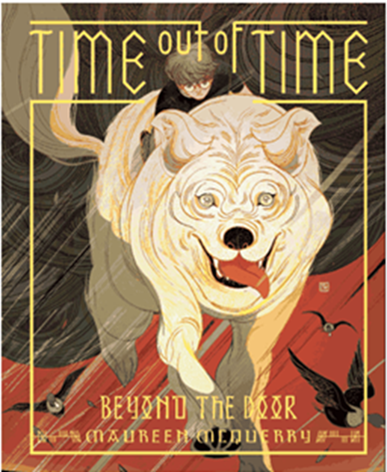 What have I learned about the world from myth as a writer and a reader? Since writing Beyond the Door and The Peculiars I’ve been thinking about why myth matters. During this tour I’ve blogged in the U.S and U.K. about six things I’ve learned from mythic stories that have inspired me. The links are below in case you missed any! And don’t forget today’s give away!U.S.6/9 http://charlotteslibrary.blogspot.com Beyond the Door, the backstory 6/10 http://middlegrademarch.com/ Cover artist Victo Ngai post, giveaway6/11 thebookcellarx@gmail.com What I’ve learned from Myth Part 16/12 http://hauntedorchid.blogspot.com What I’ve Learned from Myth part 2
What have I learned about the world from myth as a writer and a reader? Since writing Beyond the Door and The Peculiars I’ve been thinking about why myth matters. During this tour I’ve blogged in the U.S and U.K. about six things I’ve learned from mythic stories that have inspired me. The links are below in case you missed any! And don’t forget today’s give away!U.S.6/9 http://charlotteslibrary.blogspot.com Beyond the Door, the backstory 6/10 http://middlegrademarch.com/ Cover artist Victo Ngai post, giveaway6/11 thebookcellarx@gmail.com What I’ve learned from Myth Part 16/12 http://hauntedorchid.blogspot.com What I’ve Learned from Myth part 26/13 http://smack-dab-in-the-middle.blogspot.com Interview/ give away
1. Where did the idea for TIME OUT OF TIME come from? It all started with the Greenman. For the full story see my inspiration post on Day 1 (link) http://charlotteslibrary.blogspot.com
2. What is your writing process? Was the process different for this book? How much research was involved? How / where do you do your research? I often begin with scraps: an image, a character, a line of dialogue, and add to it a question that has been rumbling in my brain. I came to fiction writing through poetry, so visual images are very important to me as are the sound of words. When enough scraps come together I start to think through plot. I’m better at this now than I was when I first wrote Beyond the Door. I know my protagonists have to change by the end of the book and I need to know what major events cause that change. Stories are not about plot, but about the inner journey, changes of the protagonist. A great plot, lots of conflict and tension drive those changes.
I did quite a bit of reading about Celtic mythology for Beyond the Door and the sequel The Telling Stone. I knew I wanted to stay true to the essence of the mythic characters, but also knew that I needed to change them to fit my story. I tried to balance that desire all the way through. I like research and do a lot of it for all my books. The temptation is to get stuck in the rabbit trails of research and not get back to the writing.
3. Timothy feels like an outsider. As writers, we also find ourselves being observers, watching and listening as much as (sometimes more than) participating. Did you feel like an outsider growing up? That’s a great question with a long answer. I was an only child and I think only children grow up as observers, spending a lot of time in their heads, perfect training for becoming a writer. Some of my closest friends were in books, and I think I always looked at the world a little “slant”as Emily Dickinson might say. I wanted Timothy to be an outsider because when I wrote the book I was teaching in a program for gifted and talented kids. They often think in quirky ways and don’t always fit into school. A telling moment for me was when I saw tears in a 6th grader’s eyes and she said I’ve found people who are like me. They get me. It’s just not the reluctant, struggling students who are outsiders.
4. I love the Ogham script at the bottom of the book, which readers can decipher for themselves. It offers a way to interact with the book without being drawn completely out of the text (as some digital extras in an e-book tend to do)…How has your experience as a teacher (which involves working to keep your students engaged in your current lesson) influenced your attempts to keep your readers engaged in your books? I want to appeal to readers in as many ways as possible: visually, auditorally, and analytically. We need to engage kids on as many levels as possible.As a kid, I loved mysteries and codes. Mostly I write with what I love in mind and hope it works for other readers as well.
5. I’m also intrigued by Jessica, who is “never nice and never did the right thing.” How do you build your antagonists? Is your depiction of the school bully influenced by your observations as a teacher and parent, or more by memories of your own childhood experiences? I remember and have observed the pecking order that emerges in late elementary middle school. It’s based on body changes, style, coolness factors, and an undefinable something that can look like self-assurance even when it’s not. This pecking order can be especially viscous among young girls and yet boys are often portrayed as the bullies in books. But even the bully is more than meets the eye. I wanted to show Jessica as more than a stereotype. Like each of us, she’s complex, makes decisions that are both good and bad and ultimately longs to be understood.
6. Your passion for mythology shines through in the text. How did you get hooked on it? My mother read to me. Such a simple, but powerful statement. She didn’t read Greek myths, but fairytales from books like The Big Book of Make-Believe and Andrew Lang’s fairytale books. From earliest days, I was immersed in European myth and fairytales. A strong Irish ancestry probably supported her choices. When I began reading on my own, I feel in love with Jane Yolen, Susan Cooper, T. H. White, Tolkien, Lewis and other writers who weave myth into their stories. I read all the King Arthur legends.

7. The title of the book is referenced by Star Girl, who claims, “The land you see is still your land, but tonight we are in time out of time.” How does the title play into your feelings about the importance of mythology’s role in history / society? (I love the line which states, “All myth is a reminder of things people have forgotten they know, and of things yet to be.”) I am a huge fan of the Inklings, that celebrated group of authors that included Tolkien and C.S. Lewis. Lewis believed that myths were sign posts to deeper truths. Myths deal with the big questions of life: why are we here, is the world safe, who are we really? These are the common questions of our humanity and myth feeds that conversation. For more thoughts on this, read Tolkien’s brilliant essay “On Fairy Stories.”
8. As a kid, I loved to play Scrabble. I enjoyed Timothy’s thinking in Scrabble words. Were you a Scrabble aficionado (16 points) growing up? Is this one of the observations you stored in your memory (as you mention on your bio on your website)? I did love Scrabble, but not quite as much as Timothy. I loved words and I loved the wooden Scrabble tiles. I am a synesthetic—I see letters, days of the week and numbers in color. That’s another reason why I’m fascinated with Scrabble.
9. At the end of the book, you leave us with some questions that just beg for answers. How do you handle books in a series? Do you write the entire series at once? Or do you handle it one book at a time? Yes, to both. Each book has to have a story arc and a series must have an arc as well. I had to think in terms of how I wanted the three protagonists to change by the end of each book and then by the end of the series.
10. Your book is filled with so many great reading experiences; I especially liked Timothy saving his mother when she’s bitten by the rat. Looking back on it, your book is incredibly visual. As a writer, I find action scenes incredibly challenging. Do you enjoy writing action scenes? Why / why not? Action scenes are very hard for me to write! I rewrote the action scenes time and time again. I blocked them out with real people just like actors on a stage. Battle scenes are the worst since I have little experience with weapons. I had to find some people who did and talk to them. You’ll read some epic battle scenes in Book 2 The Telling Stone.
Because I came to fiction through poetry and because I love visual art, I think in visual terms. It’s interesting that both The Peculiarsand Beyond the Door have received comments about how visual they are.
11. I’m a young reader. I’ve just finished TIME AFTER TIME, and you’ve absolutely hooked me on mythology. What do I read next? Margi Preus just came out with West of the Moon and Jonathan Auxier’s Night Gardner (both are also published by Abrams), The Wood Wife, Wild Hunt Jane Yolen and two fantastic sites for lovers of myth and fairytales…Goblin Fruit http://www.goblinfruit.net/, Endicott Studio http://endicottstudio.typepad.com/news/.
 Be sure to get in on Maureen's giveaway. Use the Rafflecopter form to enter. a Rafflecopter giveaway
Be sure to get in on Maureen's giveaway. Use the Rafflecopter form to enter. a Rafflecopter giveaway
Published on June 13, 2014 03:00
June 12, 2014
My Love Affair with Writing
My love affair with writing began with letters. Not the alphabet ones. I’m talking about letters sent to someone and received from someone via the US mail. Once upon a time – even after the Pony Express Days – letter writing was a common form of communication. Really! When I first began to practice the art of letter writing in school, I often thought about who I could write to. In addition to the usual relatives, I sent letters to pop stars requesting autographed pictures. Amazingly, I got some. That success encouraged me to continue my letter writing campaign to pen pals. Here I had a chance to tell stories about a “day in the life” of ME, to young girls far away. While I don’t remember who I wrote to or what was said, I know it was exciting to receive a letter from someone. So exciting in fact, that I immediately wrote more letters to get more mail! When I went off to college in the 70’s, there were no cell phones, and regular phone calls were often too expensive for the college student budget, so I ramped up my letter writing to family and friends, again spurred on by every response I received. My mother kept some of those college letters – written on wrapping paper, paper bags, and many other blank surfaces that could be folded and sent in an envelope. Then, at the end of my Freshman Year, I met the young man who would become my husband. He was in the Navy at the time and we’d only see each other when he was on leave, so in between those visits, we wrote letters. I’ve saved all the letters he wrote…more than 200 of them, each in response to one I wrote to him all those years ago. In this age of instant communication, letter writing is a lost art. I don’t write so many letters any more, but all that practice has made me a better writer. And, I still get a warm feeling whenever I receive a handwritten letter. Admit it…you do too!
Published on June 12, 2014 05:00
June 11, 2014
I’m Going Rogue and Giving Away
 When the Smack Dab group decided on our June theme, I had a choice: Either write the full story of how I decided to become an author and pretty much give away half my school visit presentation (it’s a fairly captivating story; at least parts of it are) or go rogue. Okay, so it wasn’t a choice.
When the Smack Dab group decided on our June theme, I had a choice: Either write the full story of how I decided to become an author and pretty much give away half my school visit presentation (it’s a fairly captivating story; at least parts of it are) or go rogue. Okay, so it wasn’t a choice. There was a compromise, however. I could answer a tangential question, one I’m asked during about 1 of every 4 visits.
Q: How long will you keep writing books?
A: As long as it keeps being fun.
It’s still fun, the best job ever, especially when a new book finally moves out into the world. And that just happened for me. The second book in The Gollywhopper Games series, The New Champion came out 6, count ‘em, 6 years and 3 ½ months after the original book hit the shelves. Why did it take that long? That’s implied in the acknowledgments (you can see them here on my personal blog).
Due to life, I didn’t get the chance to have a real launch this time, so help me celebrate now. If you’re in the mood, go ahead and watch this trailer.
Then enter by June 30 to win. I’m giving away 2 packages that each include The Gollywhopper Games (Gollywhopper 1) and The New Champion (Gollywhopper 2) plus an official, can't-get-it-anywhere-else Gollywhopper Games t-shirt. Want in?
A. Enter by Rafflecopter below; OR
B. Follow me on Twitter (@jodyfeldman) then tweet something that makes me know you want in;
C. Comment on my website blog;
D. Take time to do all the above for 3 entries.
Thanks for keeping this fun!

a Rafflecopter giveaway
Published on June 11, 2014 03:30
June 10, 2014
June Theme: You Know You’re a Writer When…By Marcia Thorn...
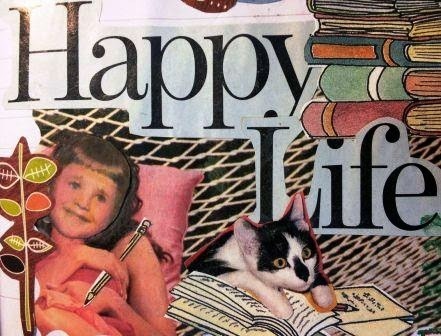 June Theme: You Know You’re a Writer When…By Marcia Thornton Jones
June Theme: You Know You’re a Writer When…By Marcia Thornton JonesI don’t remember when I first decided I wanted to be a writer.
I do know that, as a little kid, whenever my mom treated me to a ‘dime store’ toy I always picked out pads of paper and pencils. I’d fill the pages with scribbles…never drawings. One day I discovered the thrill of connecting big and little loops. My older sister Barbara glanced at my page and told me I was writing cursive l’s and e’s. From that moment on, I was hooked. My mark-making actually MEANT something? They could COMMUNICATE?
So could that be when I first decided I wanted to be a writer?
My first rejection letter came when I was in fifth grade. I wrote a poem that so impressed my mother that she sent it to a magazine. I don’t remember the sting of the rejection at all. I do remember my mother’s excitement when she read my poem--and the realization that she thought it worthy enough to share with the world.
Maybe that’s when I decided to be a writer.
There was only one teacher who provided classroom opportunity for creative writing—up until then ‘writing’ meant handwriting, spelling, English sentences, or reports. In seventh grade our teacher assigned a short story. Mine started out innocently enough…but then it led to, a-hem, a kissing scene. The night before it was due I decided I couldn’t possibly give this to my teacher (please note I went to a Catholic school). So I quickly wrote another story that included talking animals. I don’t remember the talking animal story…but I do remember a bunch of kids clustering around me on the playground to listen as I read the original story (oh, let’s be honest, they were just listening for the ‘sex’ part).
So maybe THAT’s the moment I decided I wanted to write.
Or maybe it was when I worked in a book store and caught myself wondering about all the people whose names were on the covers of those books I shelved. When that same curiosity compelled me to buy Gabrielle Lusser Rico’s book, WRITING THE NATURAL WAY.
Then again, it could’ve been when I realized my favorite part of being a teacher was sharing fun books with my students—and I started daydreaming about having my name on the cover a book.
Maybe then?
Really though, I haven’t a clue when I first realized I wanted to be a writer. In fact, it wasn’t until long after I’d published a best-selling series that I was brave enough to say the word ‘writer’ out loud. Even now, I say it with a little tinge of embarrassment because, quite honestly, I’m not sure if I’m a real writer or if I’m just sort of faking it.
I guess for me the question is, why am I writer today? What about the plot, story, and character makes me sit down at my desk and work my way through struggles of self-doubt and fear? What makes me carry my journal from room to room? To fill it with notes and doodles and ideas? What feeds my writing passion today?
Is it the love of story? Is it a desire to make sense of the world? Is it an urge to share discoveries and insights? Is it the belief that my words might help others help themselves by making sense of things through story-telling?
How about the rest of you? What makes you a writer… today ?
Published on June 10, 2014 06:48
June 5, 2014
A Dream of Her Own: June Writing Theme by Deborah Lytton
My discovery of my heart’s desire to become a writer came later in life than many of the other writers I know. My epiphany moment was during an improvisational acting class at The Groundlings in Los Angeles. I had been a professional actress for many years, and I was studying at The Groundlings to hone my comedy skills. One of the classes I took there was called the Writing Lab. In this class, I was expected to write my own comedy sketches and then perform them. It was the first time I had really concentrated on telling a story with words. And I found the experience liberating and exciting.
Interestingly, it was also during that acting class that I did some real soul searching and discovered that I no longer wanted to pursue a career as an actress. I had been working professionally in that world since the age of six, so it was a really big decision that somehow came very easily. It was time to open my heart to other possibilities. It was in letting go of one dream that I was able to make room for another. I LOVED writing. It touched my soul in a way that nothing else did, and I knew I had to continue writing.
After that, I began studying the craft of writing and working on numerous screenplays both for television and film. None of them actually sold, but I learned so much about the discipline of writing—and how much commitment it takes to finish a story. I began exploring other types of writing—short stories, novels, magazine articles. I began to think about what I really wanted to say and to whom I wanted to say it.
I fell in love with books at a very young age—and it was those same books that inspired me to try writing novels for middle graders. My first manuscript was a book about a girl and a horse. It was called “A Dream of Her Own” and I think it is a fitting title to describe my journey to becoming a writer. It took a long time to get here—but it was worth the wait.
Published on June 05, 2014 07:26
June 4, 2014
It Was a Dark and Stormy Night When I First Knew I Wanted to be a Writer
Okay, that's not entirely true, but the pivotal moment when I decided that writing would be my career did come around Halloween of 1989, when I was in the sixth grade.
Backing up a little, I always loved writing. I would write stories and poems which I would illustrate. I think I was very similar to Irene Latham in this way. Once I got into school, we did a lot of writing. Then, we would each choose one of our best pieces to "publish." This meant copying it over into a book that would then be bound in a cover made of wallpaper samples. In the younger grades, we were supposed to write it ourselves and then our teachers would write the correct words above ours, essentially deciphering our creative spellings. However, I could not stand for any errors in my books, so I asked the teacher to write it for me.
I never really thought of writing as a career. I think for most of my upper elementary school years, ice cream truck driver was top on my list. But then came that fateful assignment in 6th grade language arts. Mrs. Condon read us the beginning of a scary story, and then asked us to write the ending. She stopped just as the protagonist was about to go down the stairs to the basement. Well, I imagined a horrific, terryifying world in that basement. I can't remember the exact fate of our hero, but it was nothing good.
A few days later, Mrs. Condon read us the actual ending. It was one of those hokey stories where it turned out he had nothing to fear from the basement after all. It was a huge letdown, and I thought my own gruesome ending was much better. And if my ending was better than that of this professional writer, well then, maybe I should become a writer myself.
I tell this story at schools, and the teachers often chuckle, but the kids nod their heads, and that makes me happy because it means that the audiences are full of chidlren who believe that they, too, can be writers some day.
Backing up a little, I always loved writing. I would write stories and poems which I would illustrate. I think I was very similar to Irene Latham in this way. Once I got into school, we did a lot of writing. Then, we would each choose one of our best pieces to "publish." This meant copying it over into a book that would then be bound in a cover made of wallpaper samples. In the younger grades, we were supposed to write it ourselves and then our teachers would write the correct words above ours, essentially deciphering our creative spellings. However, I could not stand for any errors in my books, so I asked the teacher to write it for me.
I never really thought of writing as a career. I think for most of my upper elementary school years, ice cream truck driver was top on my list. But then came that fateful assignment in 6th grade language arts. Mrs. Condon read us the beginning of a scary story, and then asked us to write the ending. She stopped just as the protagonist was about to go down the stairs to the basement. Well, I imagined a horrific, terryifying world in that basement. I can't remember the exact fate of our hero, but it was nothing good.
A few days later, Mrs. Condon read us the actual ending. It was one of those hokey stories where it turned out he had nothing to fear from the basement after all. It was a huge letdown, and I thought my own gruesome ending was much better. And if my ending was better than that of this professional writer, well then, maybe I should become a writer myself.
I tell this story at schools, and the teachers often chuckle, but the kids nod their heads, and that makes me happy because it means that the audiences are full of chidlren who believe that they, too, can be writers some day.
Published on June 04, 2014 03:35
June 3, 2014
I First Knew I Was a Writer When...
 Family legend has it that my first efforts at writing came as soon as I learned to read and write. Those early pieces were love poems -- for my mother. (She has them somewhere...)
Family legend has it that my first efforts at writing came as soon as I learned to read and write. Those early pieces were love poems -- for my mother. (She has them somewhere...)By the time I was 8 years old and in the 3rd grade, I recorded in my Dr. Seuss's My Book About Me on the "When I Grow Up I Want to Be" page "writer." I also circled "veterinarian," "farmer," "mother," and "musician."
 One of the things I love about being a writer is that one can also be any of these other things! Writing is not an exclusive profession. You can write AND. Also, when you choose writing as a profession, your stories and characters allow you to be all of those other professions (like veterinarian and farmer) that you didn't choose to pursue in actual, bill-paying life.
One of the things I love about being a writer is that one can also be any of these other things! Writing is not an exclusive profession. You can write AND. Also, when you choose writing as a profession, your stories and characters allow you to be all of those other professions (like veterinarian and farmer) that you didn't choose to pursue in actual, bill-paying life.
My early works were all about my Number One Obsession in childhood: horses. I was very good at starting stories, and I loved creating bound, illustrated versions.
The bad news is that the book pictured here only has about 4 completed pages! I got burned out or my enthusiasm waned or I got distracted by a brand new idea... and never finished the story! (My tendency to abandon a story without finishing is a huge obstacle I've had to overcome!)
 And, it might help explain why I am drawn to poetry -- and was, even as a child.
And, it might help explain why I am drawn to poetry -- and was, even as a child.Hey, it's short!
All this to say: I can't remember a time in my life when I didn't identify myself as a writer. I wrote, so I was a writer! It's as essential to my sense of self as where I was born (Georgia) and the fact of being born the (smack dab in the) middle child in a chaotic family of seven.
The part I didn't know for a very long time was that I needed readers -- but my journey from furtive, private writer to a public, published one is a whole other obstacle-filled story. :)
Published on June 03, 2014 03:00
June 2, 2014
It Started With a Pink Refrigerator by Ann Haywood Leal
I was four when I became the proud owner of a pink stove and refrigerator. It was the gift of my dreams and it marked my destiny. In case some of you were confused, I am not a secret world-class chef. Those kid-sized kitchen appliances were made out of cardboard, which only meant one thing to me back then. Sure, I could whip up some pretend blueberry pancakes with that stove, but the best part of all was that it had these perfectly smooth writing surfaces. I wrote all over those things, and I invited my three-year-old brother to do it, too. Our mom must have had an inkling about our future chosen professions then, too. My brother and I weren't writing your standard picture scribbles. We wrote letters and words. We got into some trouble, of course, but almost immediately we had our own drawing pads and lined paper. Mom was an artist and a teacher and she understood. She was always replenishing the supply. She knew the importance and the thrill of having your own red mini-stapler and The Box of Sixty-Four.
By the time I was in kindergarten, I had a brief foray into the tabloid realm. Most kids tattle on their brothers and sisters, but I wrote scathing notes and left them for my parents. When I moved onto full stories, my poor older brother was often the main character, and he was usually doing something unflattering or unsavory.

By sixth grade I'd done it. I'd written my first novel. I made it one hundred pages, because that sounded literary to me. I was so proud. I wrote almost all of it on the colored notebook paper for which I'd begged my mom. Then I made the mistake of announcing my completed novel in the car on the way to swimming lessons. Unfortunately, it wasn't my parents driving. It was another carpool parent who happened to be the assistant superintendent of schools. I said I was going to have it published and he laughed. I can still remember his voice and what the back of his wide head looked like from the viewpoint of the back seat.
Luckily, I was also at that time deeply ensconced in a love affair with all things Carolyn Keene and Judy Blume. My mom had recently swiped a very-hard-to-get-at-the-library copy of ARE YOU THERE GOD? IT'S ME, MARGARET for me. Just to be clear, she didn't steal it from the library or a book store, she "borrowed" it for the weekend out of the desk of one of her students. The student had been committing the heinous crime of hoarding a Judy Blume book for over a week. Anyhoo . . . I wrote to Judy Blume and told her all about my epic novel, and SHE WROTE BACK! She didn't laugh in her letter. She was gracious and encouraging and she told me to save all of my stories.

So here I am. Just for the record, my refrigerator isn't pink, but it has pictures and magnetic poetry all over it.

By the time I was in kindergarten, I had a brief foray into the tabloid realm. Most kids tattle on their brothers and sisters, but I wrote scathing notes and left them for my parents. When I moved onto full stories, my poor older brother was often the main character, and he was usually doing something unflattering or unsavory.

By sixth grade I'd done it. I'd written my first novel. I made it one hundred pages, because that sounded literary to me. I was so proud. I wrote almost all of it on the colored notebook paper for which I'd begged my mom. Then I made the mistake of announcing my completed novel in the car on the way to swimming lessons. Unfortunately, it wasn't my parents driving. It was another carpool parent who happened to be the assistant superintendent of schools. I said I was going to have it published and he laughed. I can still remember his voice and what the back of his wide head looked like from the viewpoint of the back seat.
Luckily, I was also at that time deeply ensconced in a love affair with all things Carolyn Keene and Judy Blume. My mom had recently swiped a very-hard-to-get-at-the-library copy of ARE YOU THERE GOD? IT'S ME, MARGARET for me. Just to be clear, she didn't steal it from the library or a book store, she "borrowed" it for the weekend out of the desk of one of her students. The student had been committing the heinous crime of hoarding a Judy Blume book for over a week. Anyhoo . . . I wrote to Judy Blume and told her all about my epic novel, and SHE WROTE BACK! She didn't laugh in her letter. She was gracious and encouraging and she told me to save all of my stories.

So here I am. Just for the record, my refrigerator isn't pink, but it has pictures and magnetic poetry all over it.

Published on June 02, 2014 03:42
June 1, 2014
SMACK DAB NEWS
Just in: Darlene Beck-Jacobson's forthcoming MG, WHEELS OF CHANGE, now has a fantastic trailer:
Published on June 01, 2014 02:00



